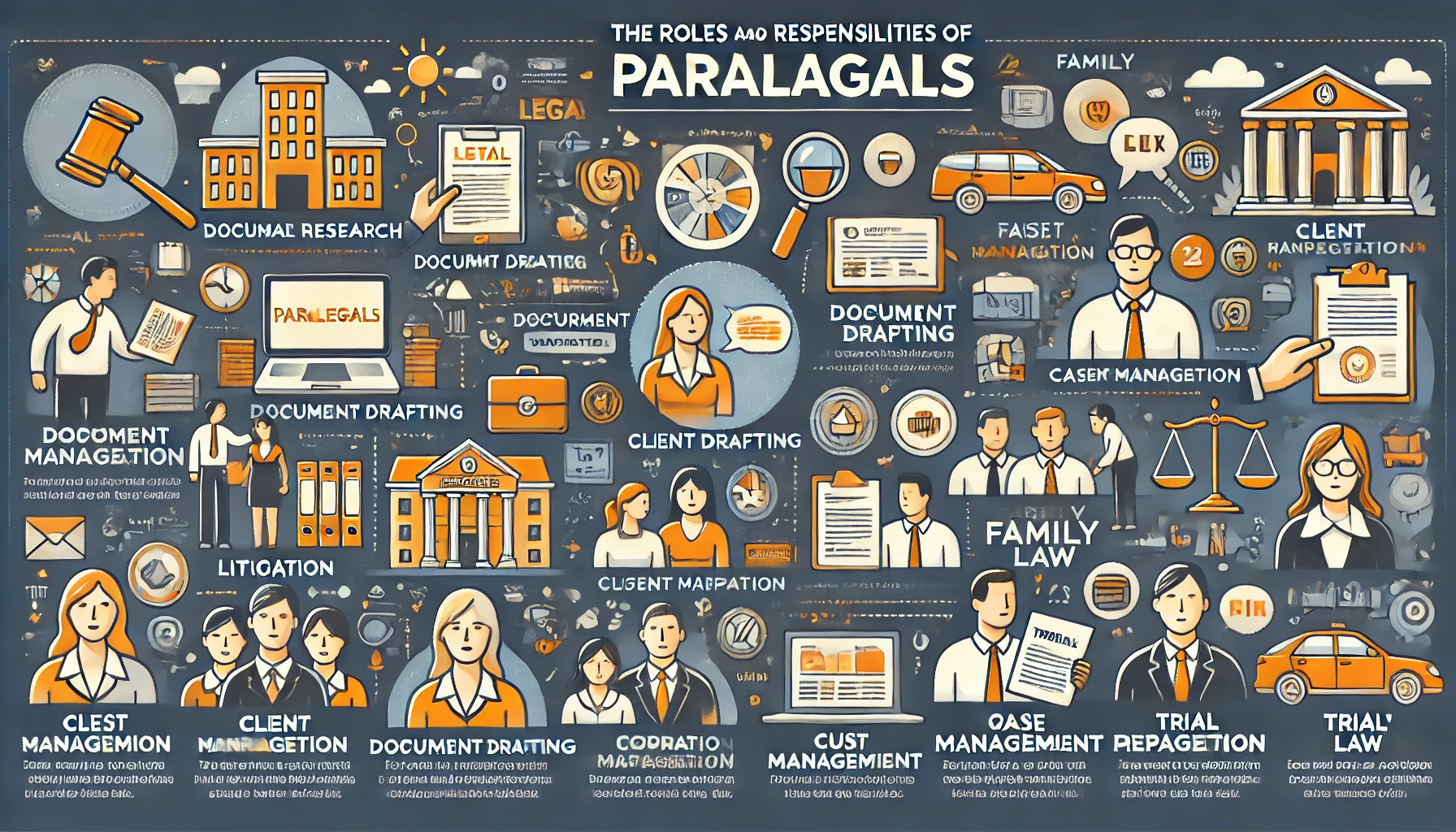What Does a Paralegal Do? Understanding the Role and Responsibilities
Paralegals play a crucial role in the legal field, providing support to lawyers and ensuring the smooth functioning of legal operations. While they are not licensed to practice law, their skills and expertise make them invaluable assets in law firms, corporations, and government agencies. This post will explore the various responsibilities of paralegals, the skills required for the job, and the different settings in which they work.
1. Defining the Role of a Paralegal
A paralegal is a trained professional who assists lawyers in delivering legal services. They perform a variety of tasks that help streamline legal processes and enhance the efficiency of law practices. The specific duties of a paralegal can vary depending on the area of law they specialize in and the needs of their employer.
Key Characteristics of a Paralegal
- Supportive Role: Paralegals work under the supervision of attorneys, helping them prepare for cases and manage their workload.
- Not a Lawyer: While paralegals have legal knowledge and skills, they are not licensed to practice law and cannot provide legal advice or represent clients in court.
2. Responsibilities of a Paralegal
Paralegals undertake a wide range of tasks, which can include:
Legal Research
- Conducting Research: Paralegals often conduct legal research to gather information on statutes, case law, and legal precedents relevant to ongoing cases.
- Case Preparation: They analyze and summarize legal documents, helping attorneys understand the facts and issues at hand.
Document Drafting and Review
- Preparing Legal Documents: Paralegals draft a variety of legal documents, including pleadings, motions, contracts, and discovery requests.
- Reviewing Documents: They review legal documents for accuracy and completeness, ensuring that all necessary information is included.
Client Interaction
- Communicating with Clients: Paralegals often serve as a point of contact between clients and attorneys, gathering information and keeping clients informed about their cases.
- Interviewing Clients: They may conduct initial interviews with clients to obtain essential information and documentation for legal proceedings.
Case Management
- Organizing Case Files: Paralegals maintain and organize case files, ensuring that all relevant documents are easily accessible.
- Tracking Deadlines: They help manage deadlines and ensure that legal documents are filed in a timely manner, adhering to court rules and procedures.
Assisting in Trial Preparation
- Preparing Exhibits: Paralegals assist in preparing trial exhibits, witness lists, and other materials necessary for court proceedings.
- Attending Court Hearings: While they cannot represent clients, paralegals may attend court hearings to assist attorneys and take notes on proceedings.
3. Areas of Specialization
Paralegals can specialize in various areas of law, which influences their specific responsibilities. Some common specializations include:
Litigation Paralegals
- Role: Focus on cases that involve lawsuits, including civil, criminal, and family law matters. They assist attorneys in trial preparation, discovery processes, and court filings.
Corporate Paralegals
- Role: Work in corporate legal departments, assisting with business transactions, regulatory compliance, and corporate governance matters.
Real Estate Paralegals
- Role: Specialize in real estate law, assisting with property transactions, title searches, and lease agreements.
Family Law Paralegals
- Role: Support attorneys in family law matters such as divorce, custody, and adoption cases, helping with documentation and case management.
Immigration Paralegals
- Role: Assist with immigration cases, including visa applications, green card processes, and naturalization.
4. Skills and Qualifications
To succeed as a paralegal, individuals need a combination of legal knowledge and practical skills:
Educational Background
- Degree or Certificate: Many paralegals hold an associate’s degree in paralegal studies or a bachelor’s degree in a related field. Some may also complete paralegal certification programs.
Legal Knowledge
- Understanding of Legal Terminology: A solid grasp of legal terminology, concepts, and procedures is essential for effectively assisting attorneys and managing legal documents.
Research Skills
- Conducting Legal Research: Proficiency in conducting legal research and utilizing legal databases is crucial for gathering relevant information.
Communication Skills
- Written and Verbal Communication: Strong communication skills are necessary for drafting documents, interacting with clients, and collaborating with attorneys.
Organizational Skills
- Attention to Detail: Paralegals must be highly organized, with a keen attention to detail to manage case files and ensure accuracy in documentation.
Technical Proficiency
- Familiarity with Legal Software: Proficiency in legal research tools, case management software, and document management systems is increasingly important in modern law practice.
5. Work Environments
Paralegals can be found in various work settings, including:
Law Firms
- Private Practice: Many paralegals work in private law firms, providing support across various practice areas.
Corporate Legal Departments
- In-House Counsel: Corporate paralegals work within companies to assist legal teams with business-related legal matters.
Government Agencies
- Public Sector: Paralegals may work for government agencies, assisting with regulatory compliance, public policy, or legal aid services.
Nonprofit Organizations
- Advocacy and Support: Some paralegals work for nonprofit organizations, providing legal assistance and support for underrepresented populations.
6. Career Outlook and Advancement
The demand for paralegals is growing as legal professionals seek to improve efficiency and reduce costs. According to the U.S. Bureau of Labor Statistics, employment for paralegals is projected to grow faster than the average for all occupations.
Advancement Opportunities
With experience, paralegals can advance to supervisory roles or specialize further in areas such as litigation support or compliance. Some may choose to pursue law school and become licensed attorneys.
Conclusion
Paralegals are essential members of the legal profession, providing critical support to attorneys and contributing to the efficient functioning of legal systems. Their diverse responsibilities, areas of specialization, and growing demand highlight the importance of this profession. Whether working in law firms, corporate environments, or nonprofit organizations, paralegals play a vital role in ensuring that clients receive the legal assistance they need. Understanding what paralegals do can help individuals appreciate the complexity of legal work and the valuable contributions of these skilled professionals.






